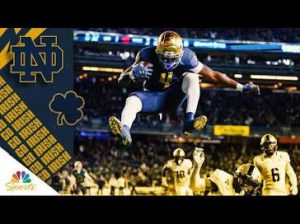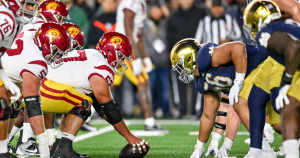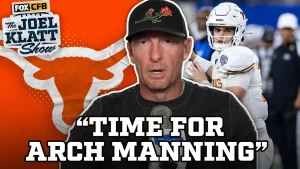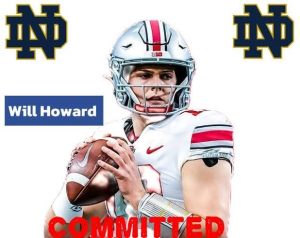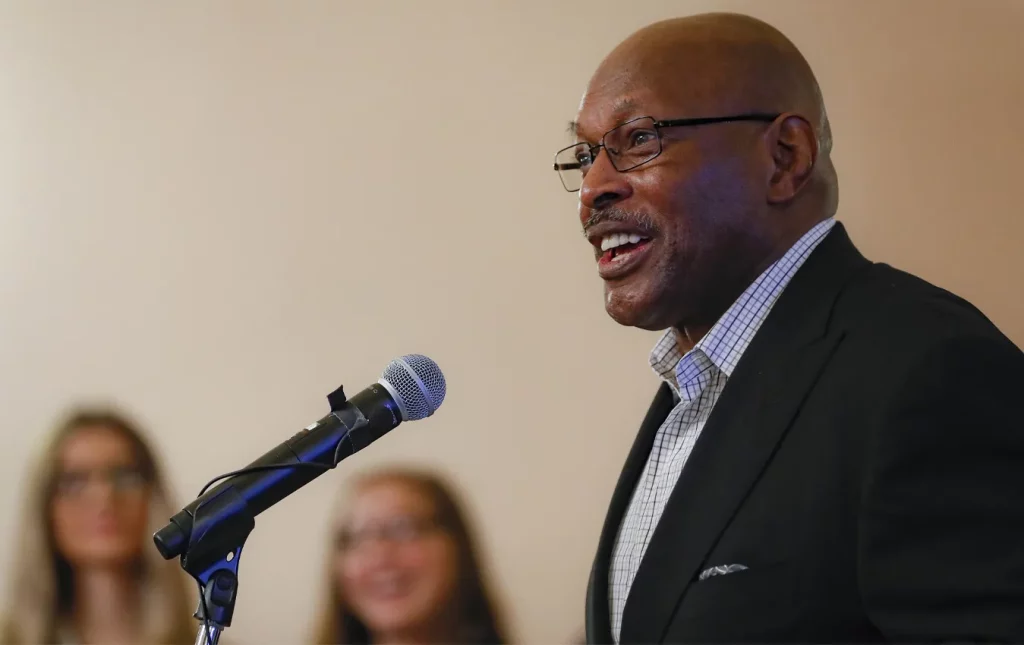
Archie Griffin, a legend at Ohio State crowned the greatest college football player of all time, surpassing Earl Campbell, Tim Tebow, and Herschel Walker.
In the annals of college football history, greatness is often measured by moments of brilliance, records shattered, and championships won. Over the decades, names like Herschel Walker, Tim Tebow, and Earl Campbell have become synonymous with excellence. Yet, when the dust settles and legacy is examined with both reverence and scrutiny, one name rises unmistakably to the top: Archie Griffin.
Recently crowned as college football’s greatest player of all time, Archie Griffin’s unmatched accomplishments, enduring impact, and impeccable character have solidified his place atop the sport’s Mount Olympus—surpassing even the legendary careers of Walker, Tebow, and Campbell.
At the heart of Griffin’s legendary status lies a distinction no other player in the history of college football can claim: he is the only two-time recipient of the Heisman Trophy, awarded in 1974 and 1975. The Heisman Trophy is perhaps the most prestigious individual award in American sports, and winning it once cements a player’s legacy. Winning it twice? That places a player in a realm of their own.
Griffin’s back-to-back Heisman victories weren’t just products of flashy performances or media hype. They were earned through relentless consistency, unwavering leadership, and a dominance that few in college football history could match. Over four seasons at Ohio State, from 1972 to 1975, he rushed for 5,589 yards, a school and Big Ten record at the time, and amassed 31 100-yard rushing games, a streak that remains astonishing decades later.
While players like Herschel Walker bulldozed defenders with sheer power, and Tim Tebow galvanized teams with emotional leadership, Archie Griffin carved his greatness through consistency and grace. He wasn’t the biggest or fastest back—standing 5’9″ and weighing under 190 pounds—but he possessed extraordinary vision, balance, and an uncanny ability to avoid contact and turn potential losses into big gains.
Griffin never missed a game during his college career. From his first breakout performance in 1972 as a freshman, rushing for 239 yards against North Carolina, to his final game in the 1976 Rose Bowl, he was the embodiment of durability and dependability. While others burned brightly for a season or two, Griffin’s light never dimmed over four seasons of elite play.
Herschel Walker’s legacy is immense. His 1981 Heisman season, a national championship in 1980, and over 5,000 rushing yards in just three seasons make him one of the greatest to ever play. But Walker’s career, as stellar as it was, didn’t quite match Griffin’s blend of longevity, accolades, and leadership.
While Walker played only three seasons at Georgia, Griffin’s four years of dominance allowed him to compile superior career numbers and establish records that stood for decades. Griffin also played in four Rose Bowls—something few players in college football history can boast. His sustained excellence gives him the edge over Walker, whose professional career often overshadows his collegiate brilliance.
Tim Tebow may be the most iconic quarterback of his generation. With a Heisman Trophy (2007), two national championships, and a highlight reel that captured the imagination of fans nationwide, Tebow is undoubtedly an all-time great. But in the pantheon of college football, where running backs and quarterbacks compete for legacy, Griffin’s achievement of winning two Heismans and finishing in the top five in voting three times is simply unparalleled.
Tebow’s leadership and intangibles are legendary, but Griffin matched him with his own version of leadership—quiet, dignified, and powerful. Off the field, Griffin has remained a paragon of humility and class, often serving as the standard-bearer for Ohio State athletics. Tebow’s post-football media presence is unmatched, but when it comes to on-field legacy in college football, Griffin still stands taller.
Earl Campbell, the “Tyler Rose,” redefined power running in the 1970s. His 1977 Heisman Trophy win and dominant play for the Texas Longhorns made him a fearsome figure on the field. He was raw, punishing, and unstoppable when healthy. Yet, Campbell’s greatest feats came during a single spectacular season—his senior year.
By contrast, Griffin’s consistency over four years paints a fuller picture of greatness. Campbell’s physical style also limited his durability, something that plagued his NFL career as well. Griffin’s ability to stay healthy, remain productive, and continuously improve stands in contrast to Campbell’s flash of brilliance.
What truly sets Archie Griffin apart isn’t just what he did—it’s how he did it. In an era where college football has grown increasingly commercialized, Griffin represents the purer spirit of the game. He was never one for showmanship. He led by example, with humility and respect for the game.
Griffin’s post-football career is as distinguished as his playing days. He returned to Ohio State, serving as President and CEO of the Ohio State Alumni Association and remaining an ambassador for both the university and college football as a whole. His work in community service, education, and youth mentorship has only enhanced his reputation.
While some players fade into obscurity after their playing days, Griffin has remained a respected figure, not because of media attention, but because of the values he has consistently demonstrated.
Griffin’s influence extends far beyond his stats and trophies. He elevated Ohio State football into a national powerhouse and helped raise the standard for running backs nationwide. Under the legendary coach Woody Hayes, Griffin’s discipline and production became a template for future generations.
He was also a trailblazer for Black athletes in the 1970s, navigating the complexities of race, expectations, and leadership with grace. His performance helped break down stereotypes and opened doors for others.
When comparing college football greats, it’s easy to get caught up in recency bias. The highlight reels of Tebow’s jump passes, Walker’s bulldozing runs, and Campbell’s bruising style are unforgettable. But greatness isn’t just about spectacle—it’s about longevity, leadership, performance under pressure, and the ability to inspire both on and off the field.
Griffin’s accolades include:
-
2× Heisman Trophy winner (1974, 1975)
-
4× Big Ten Champion
-
3× First-team All-American
-
4× Rose Bowl appearances
-
Inducted into the College Football Hall of Fame (1986)
No other player in college football can claim that combination of individual excellence and team success, all while maintaining the highest standards of integrity.
To be crowned the greatest of all time is not merely to be remembered; it is to be revered. It is to set a standard against which all others are measured.
In Archie Griffin, college football has found a true champion, not only of the game but of the values it aspires to uphold—discipline, humility, consistency, and excellence. While many legends have graced the gridiron, none have done so with the grace and greatness of Griffin.
As the sport evolves and new stars rise, it is essential to look back and honor those whose legacies endure not just in numbers, but in impact. Archie Griffin isn’t just a name in the record books—he is the benchmark, the gold standard, and now, officially, the Greatest of All Time.

